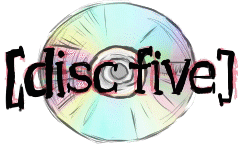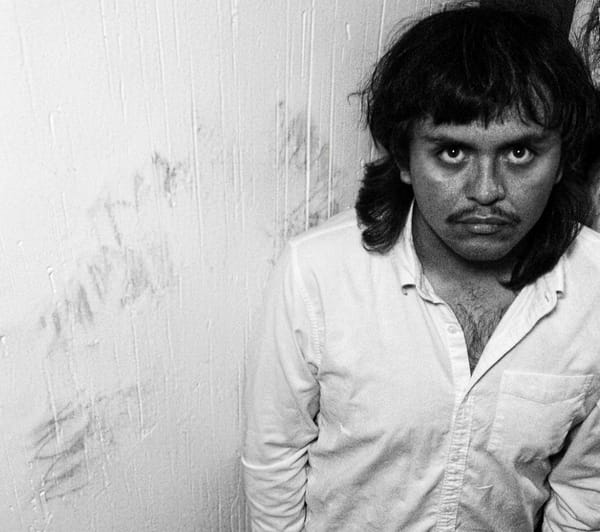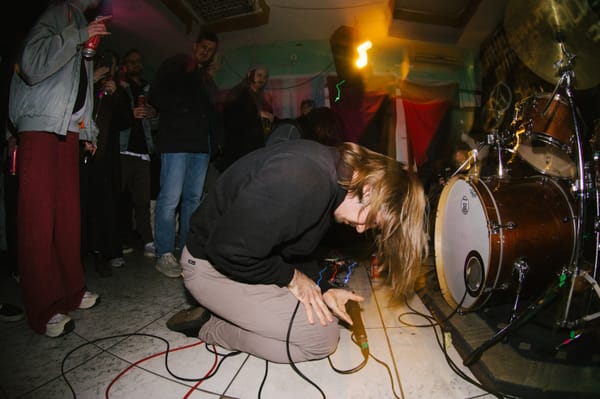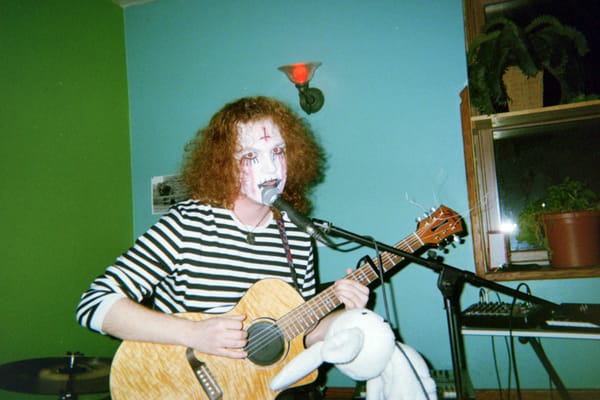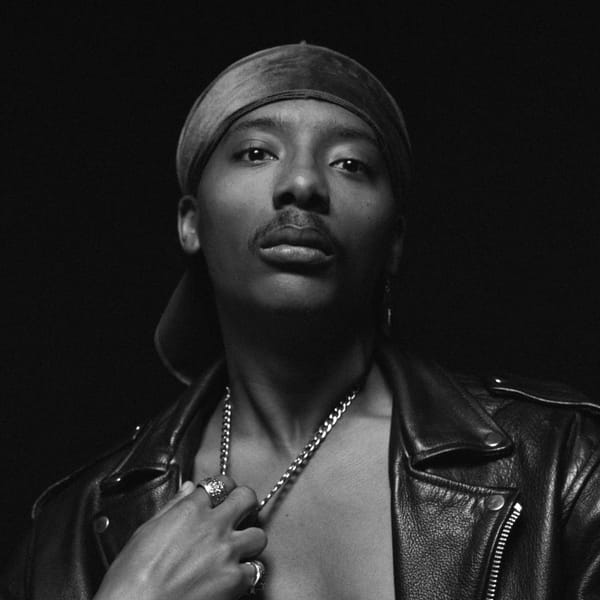Hectorine talks synths, Kate Bush, mythology, and her new album, Arrow of Love
"It really felt like it was my own underworld journey, and it felt like I had to die a death of sorts."
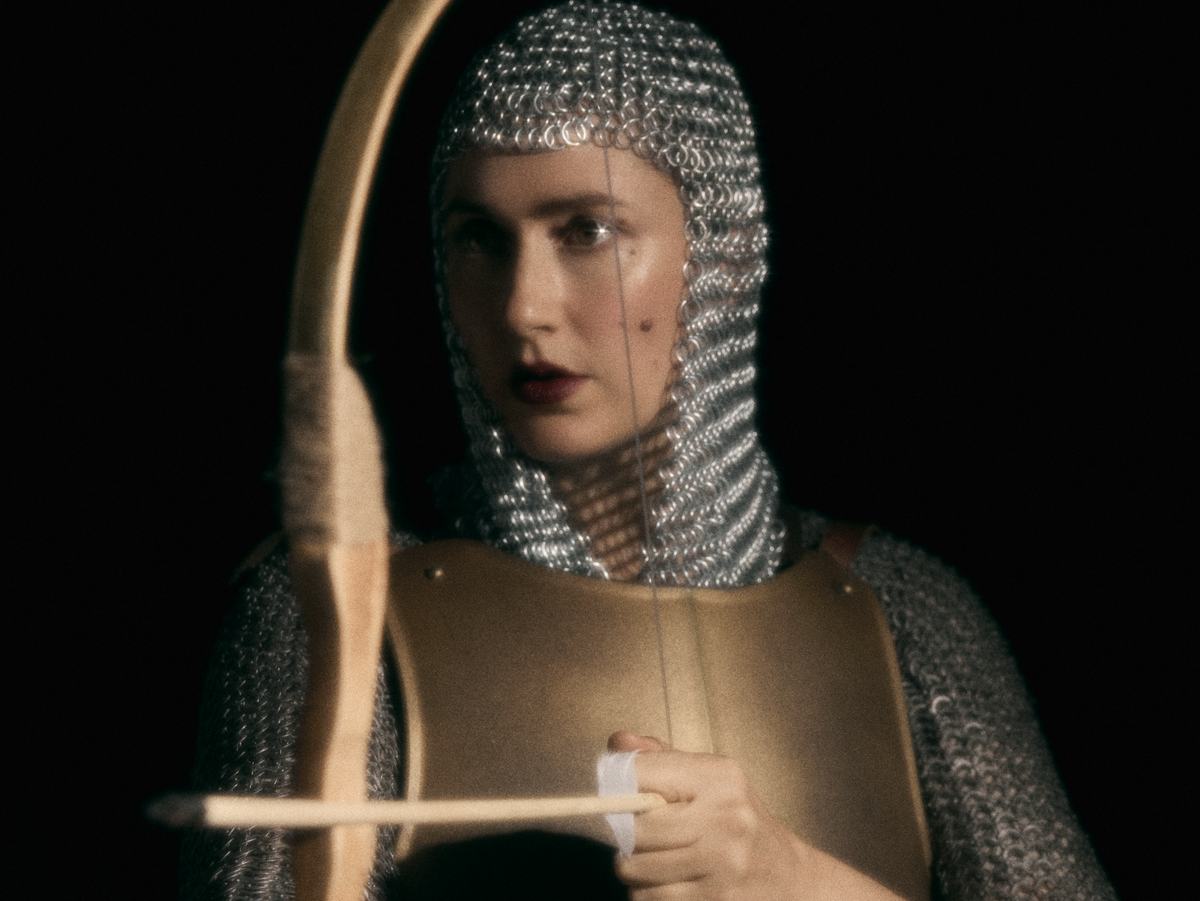
Imagine sitting criss-cross applesauce in your living room, watching tabloid talk shows on the console television. Your mom is lounging in a threadbare recliner, draped in a nightgown with beauty curlers still in her hair, and rereading some self-help book. Next to her is an ashtray, a gaudy beaded lamp, and a modest portable radio. She bought the radio after your dad left, relishing the fact that she would never have to hear him tell her to “turn that shit off” again.
The morning show DJ finishes his preamble and starts to play some music. Your mom turns it up louder. “Oh, I loooove this one,” she announces, and gets up from the chair. She sways with the music, accidentally ashing her cigarette all over the shag carpet. Mom and the radio both sing - “Is love an illusion? Is love an illusion?”
On Arrow of Love, Hectorine (aka Sarah Gagnon) mixes devastation with streaks of synths, soft rock, and camp. And just to be clear, when I suggest that an eccentric single mom would jam out to this album, I mean that as the highest compliment. Much of the album sounds like it belongs on a killer breakup mixtape, slotted in somewhere between Fleetwood Mac’s “Isn’t It Midnight”, Peter Gabriel’s “Don’t Give Up”, and Bridget St. John’s “Downderry Daze”.
In the past, Sarah Gagnon's music skewed more folksy, although you can still hear the genre's influence on tracks like “Take a Chance With Me". All the storybook imagery present on Arrow of Love, however, have always been there. Across the release, she references Joan of Arc and rewrites resurrection myths, often drawing inspiration from Inanna, a Mesopotamian goddess who dies in hell and later comes back to life.
I could tell you the story of Inanna and how it parallels Gagnon's experiences with COVID lockdown, but it's better if she tells you herself. She hopped on a video call with me and we talked about her album, her muses, and her love of synths. We also talked a lot about Kate Bush, and both think you need to listen to The Sensual World more often.
Read the full interview below.
How does it feel to have the album done and ready to be shared with the world?
Like, incredible and also unbelievable at the same time because it was such a Herculean task. A lot of these songs I wrote a really long time ago, back in 2020. So it's good, it's fun to be in this mode. And it also feels vulnerable - sharing the thing that you've been working on for so long.
Was all of this written during lockdown?
Pretty much, yeah. I mean, some stuff came a little bit after lockdown fully ended, but it was pretty much all during that time.
I read that you'd been inspired by the Mesopotamian myth of Inanna. What about it clicked with you?
I don't know if I necessarily sat down and decided to write a concept album about the Descent of Inanna. At the time I was studying the ancient text with the poet Ariana Reines, and I would wake up at 6 a.m. every day to attend her online class. And I found that the two experiences, mine and Inanna’s, paralleled each other. I mean, not in the sense that I am the queen of Heaven and Earth and that I'm a warrior goddess who heard the call of the underworld. But I mean, that's what myth is, right? It's metaphor.
Can you tell me more about how they paralleled?
Well, at that time COVID was raging, and simultaneously the wildfires were raging in California - so I could see people neither inside nor outside. I was so isolated, my relationship fell apart, and I felt completely unmoored. It was a time when I really had to face my demons. I had busied my way out of them for a really long time, and suddenly it wasn't possible to do that anymore. So in that sense, it really felt like it was my own underworld journey. It felt like I had to die a death of sorts.
I do go full Joan of Arc for part of this song, too, but in the title track, “Arrow of Love,” there's this description of Inanna fully clad in all of her queenly vestments as she descends through the seven gates of hell. The story goes that she has to relinquish one at each gate so that she is laid bare in the bowels of hell.
It's there that her sister Ereshkigal is in great agony, giving birth. She's in so much pain that she ends up killing Inanna. Eventually, Inanna's father figure Enki sends down these two sexless beings to go and negotiate for Inanna. So they also see that Ereshkigal is in the middle of giving birth. She's howling in pain and they start echoing her.
In return for witnessing her pain, the beings ask to bring Inanna back to life, and when she's resurrected she finds that her beloved shepherd lover, Dumuzi, did not mourn her death. She doesn't reeeeally want to, but she sacrifices him in her place.
The idea of the twin beings echoing her pain back is really cool, I like that imagery a lot.
Yeah, I think it's a really deep story on a lot of levels. It's really beautiful…and also very sexy, actually. There's quite a bit of Inanna and Dumuzi enjoying each other.
Do you find that you resonate with myths like this a lot? Do you draw inspiration from them often?
I don't know if it makes its way directly into my songs, but I definitely am very interested in mythology. I've traditionally been very interested in ancient Greek and Roman mythology. It's funny, I was thinking about how so many of these stories are kind of the same; the same kind of resurrection myth across many cultures, the same stories of going to hell and back.
In terms of the instrumental side of the album - were there more collaborators and instrumentalists on this compared to your past albums?
No, but it does sound like that because the arrangements are a little bit more complex on this album. They're not played by more people, but there are more instruments. Geoff Saba, who I worked with on the album, plays pretty much everything - keyboards, guitar, marimba, and saxophone. And then my friend Jon Wujcik drummed on it, and my partner, Joel Robinow, played some keyboards and sung some harmonies.
And I saw that you played the Mellotron flute?
Oh, yeah. The Mellotron is such a funny thing because it's not actually a flute, right? It's just flute samples that they put into a synthesizer, essentially. But it's such a beautiful sound, and it's very iconic. I used that a lot on my first album, too.
I was really drawn to the sheer amount of synth on this. All of those 70’s and 80’s sounding synthlines are great.
I have to point out that the hero of the album - the synth that figures in very heavily throughout - is the Korg Wavestation. It's got a little bit of a New Age vibe. We added that in quite a bit. And whenever we were thinking, like, “oh, it needs an additional texture, what's it going to be?”, it would always be the Wavestation.
Do you listen to a lot of synth-heavy music?
I do love synths, yes. But I think my taste is more of a combination of artists like Bridget St. John, Nico, Sibylle Baier. I love 70’s folk. My first album was much more folk-y.
I remember talking to Geoff about producing [Arrow of Love] and I was like, “oh, I don't see there being a lot of synths on the album.” But then once we were in the studio, it just kind of naturally gravitated in that direction.
To hear that the synths weren’t incorporated until later is really interesting. I figured they had been center stage from the get-go.
For “Is Love an Illusion,” I was looking for some inspiration in terms of production. Because I wrote that song on the keyboard, but then I was like, “I don't want this to be a piano song!” And then I was thinking about Fleetwood Mac’s Tango in the Night, and I was like, “okay, they've got a song with some marimba and some synth - what would happen if we did that?”
You know, I was listening to “Everybody Says” and I thought it was kind of giving Twin Peaks vibes. And then later, I found an interview where you had mentioned listening to Julee Cruise during production.
Yeah, yeah! I had been listening to Julee Cruise on repeat in 2020. When we did that spoken word part at the end of “Everybody Says”, Geoff was like, “that was such a Julee Cruise thing to do.” The production on all of the Angelo Badalamenti stuff is so incredible. There's the dreaminess and there's the sadness and the longing, and I feel like that certainly made its way into the album.
I think at a certain point Geoff and I were talking about doing a Julee Cruise cover band for Halloween, but then I didn't have time last year. I'd probably have to, like, pitch everything down to sound like her. It’s funny you brought that up. I don’t really think I sound like her, so I’m curious as to how you pulled that out.
Well, honestly, part of it is that I’m just always thinking about Twin Peaks. I love that soundtrack, it’s a big one for me.
Okay, yeah, I see that. You know, when you're so close to the music…it’s like, I know what I was trying to do, but I never know how it reads to anyone else. And because everybody has their own set of references and what they listen to and what they've heard before, you never know.
I was just listening to an interview with Lynne Tillman, who's a writer that I really admire, and she mentioned how Virginia Woolf wrote an essay basically saying that with art and music and literature, a lot of it is in conversation with each other. It doesn't exist in a vacuum, right? So it's, like, almost impossible to listen to a song and not think of what it reminds you of.
I've always said I'm the worst at describing my own music because…this is gonna sound odd, but I don't talk about music in the way that a lot of people talk about music. Where they're like, “oh, this sounds like shoegaze mixed with darkwave.” That's, like, not my relationship to music. I only know how to talk about how it makes me feel.
Sometimes, it makes me feel inadequate when trying to describe my own music, because I'm just like, “I don't know, I wrote a song and this is what it is! I created some nice sounds!” I’m never going for a certain genre, I just do whatever serves the song. You have to follow the muses.
No, I totally get what you're saying. I hear musicians say stuff like that a lot - about being surprised by the genre descriptors that people use to describe them.
Right, right, exactly. That's just, like, how it is, right? You put it out into the world and people are going to say whatever they're going to say. And that's valid, too.
Well, I mean, it would be weird if someone described this album as a metal album, but someone can find a way. Who knows?
I like when reviewers say, “oh, this musician was clearly super influenced by This Band,” and then the musician will be like, “I’ve never listened to That Band in my life.”
I know, right? I just hope that if that happens to me, it's somebody that I like.
Actually, it kind of did happen to me because Will of Broken Dreams Club had said that he saw a lot of Kate Bush in the album. I was like, this is great! But I don't understand!
I hate to say, but I also thought about Kate Bush while listening to the album…but just like with Twin Peaks, I’m kinda always thinking about Kate Bush, so I might be biased.
Oh, no, I don't hate that. I mean, it's like, the greatest compliment. Kate Bush is hands down one of my favorite artists of all time.
Here is fun trivia - I once took the Megabus down to L.A. many, many years ago, and I listened to The Dreaming the entire way. And it takes, like, eight hours.
Oh, I’ve forced that album on my friends before. I'm like, “okay, you may have listened to Kate Bush, but have you heard her pretend to be a donkey?” ...That’s kind of an insane thing to listen to for that long.
Yeah, little bit unhinged. Maybe borderline insane. But I committed.
I want to talk about the music videos you released. Was it fun to embody a public access psychic persona for “Is Love an Illusion”?
Oh yeah. I love acting, playing different characters, thinking about what they're gonna wear. It was really fun to develop the concept with [directors Joel Gregory and Justin Carder] over many pizza and wine fueled nights.
Who was your character inspired by?
The famous TV psychic, Miss Cleo, was certainly a touch point, but then also Sally Jessy Raphael, Maury Povich, all of those kind of classic 90's talk shows. My character is a talk show host who has all these guests on and people are slapping each other. My friend Jenny, of course, comes to set with her Bigfoot costume, just to make it as campy as possible. I mean, if you're gonna do something, why not go all the way, right?
And then, shifting over to the music video for “Everybody Says” - much more low-key.
Yeah, to go from playing a 90’s talk show host to doing, like, an arthouse film…it was very different. But, you know, you have to be constantly reinventing yourself. And I've known [director Karina Gill] for a very, very long time. We originally had this idea of shooting outside in this really stark industrial setting. Then the week of the shoot came around, and we only had one day to do it, and it was gonna rain. So then it was like, “well, I guess we're gonna shoot inside.”
But sometimes these things are actually exactly what it should be, you know. Having this interior portrait of loneliness suited the song even better than what we had originally planned.
Since our interview, Hectorine has released two more music videos for “Take a Chance With Me” and "Heart of Stone". Arrow of Love is out now on Take a Turn Records, so stream it wherever you listen to music and check out the vinyl release over on Bandcamp. You can also follow her over on Instagram.
